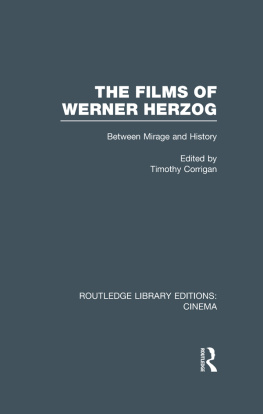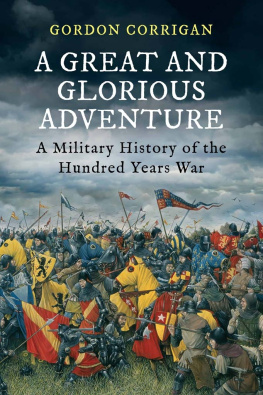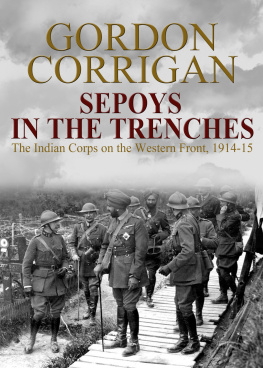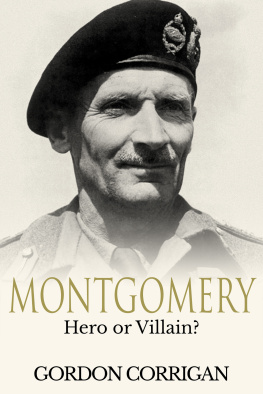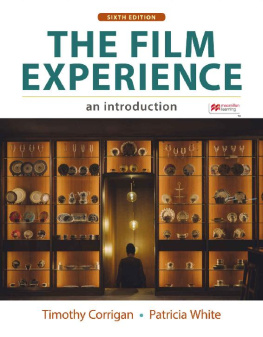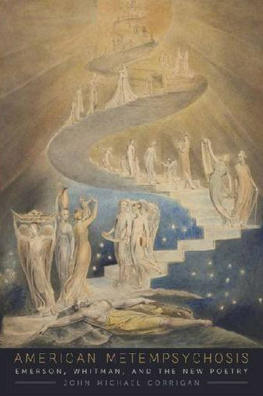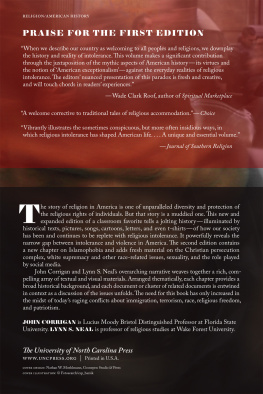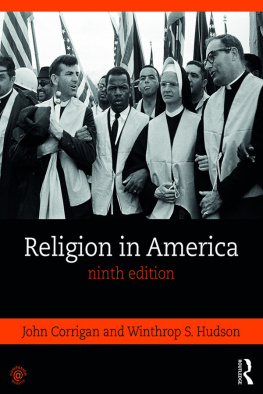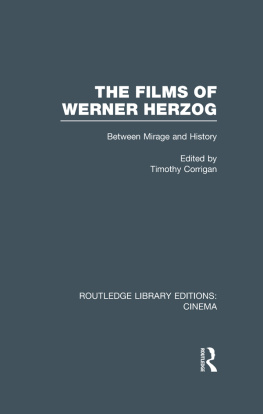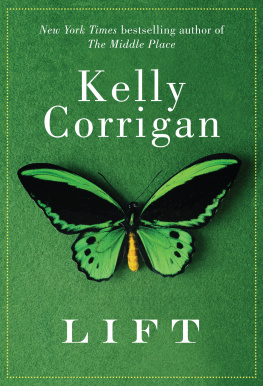Corrigan - Essay Film
Here you can read online Corrigan - Essay Film full text of the book (entire story) in english for free. Download pdf and epub, get meaning, cover and reviews about this ebook. City: USA, year: 2011, publisher: Oxford University Press, genre: Science. Description of the work, (preface) as well as reviews are available. Best literature library LitArk.com created for fans of good reading and offers a wide selection of genres:
Romance novel
Science fiction
Adventure
Detective
Science
History
Home and family
Prose
Art
Politics
Computer
Non-fiction
Religion
Business
Children
Humor
Choose a favorite category and find really read worthwhile books. Enjoy immersion in the world of imagination, feel the emotions of the characters or learn something new for yourself, make an fascinating discovery.

Essay Film: summary, description and annotation
We offer to read an annotation, description, summary or preface (depends on what the author of the book "Essay Film" wrote himself). If you haven't found the necessary information about the book — write in the comments, we will try to find it.
Essay Film — read online for free the complete book (whole text) full work
Below is the text of the book, divided by pages. System saving the place of the last page read, allows you to conveniently read the book "Essay Film" online for free, without having to search again every time where you left off. Put a bookmark, and you can go to the page where you finished reading at any time.
Font size:
Interval:
Bookmark:
THE ESSAY FILM
FROM MONTAIGNE, AFTER MARKER
Timothy Corrigan


Oxford University Press, Inc., publishes works that further
Oxford Universitys objective of excellence
in research, scholarship, and education.
Oxford New York
Auckland Cape Town Dar es Salaam Hong Kong Karachi
Kuala Lumpur Madrid Melbourne Mexico City Nairobi
New Delhi Shanghai Taipei Toronto
With offices in
Argentina Austria Brazil Chile Czech Republic France Greece
Guatemala Hungary Italy Japan Poland Portugal Singapore
South Korea Switzerland Thailand Turkey Ukraine Vietnam
Copyright 2011 by Oxford University Press, Inc.
Published by Oxford University Press, Inc.
198 Madison Avenue, New York, New York 10016
www.oup.com
Oxford is a registered trademark of Oxford University Press
All rights reserved. No part of this publication may be reproduced,
stored in a retrieval system, or transmitted, in any form or by any means,
electronic, mechanical, photocopying, recording, or otherwise,
without the prior permission of Oxford University Press.
Library of Congress Cataloging-in-Publication Data
Corrigan, Timothy.
The essay film : from Montaigne, after Marker / Timothy Corrigan.
p. cm.
Includes bibliographical references and index.
ISBN 978-0-19-978169-0 (hardcover : alk. paper) ISBN 978-0-19-978170-6 (pbk. : alk. paper)
1. Experimental filmsHistory and criticism. I. Title.
PN1995.9.E96C67 2011
791.43611dc22 2011006312
1 3 5 7 9 8 6 4 2
Printed in the United States of America
on acid-free paper
THE ESSAY FILM
WHEN I BEGAN to work on this book in the 1990s, the phrase essay film was a fairly cryptic expression that normally required more than a little explanation. Since then, both the phrase and the films have become increasingly visible, and although for many the notion of an essay film remains less than self-explanatory, this particular mode of filmmaking has become more and more recognized as not only a distinctive kind of filmmaking but also, I would insist, as the most vibrant and significant kind of filmmaking in the world today.
Some versions of the essay film arguably extend back at least to D. W. Griffiths 1909 A Corner in Wheat, a sharp social commentary on the commodity wheat trade, or, more convincingly, to the 1920s and Sergei Eisensteins various cinematic projects, such as his never-completed film adaptation of Marxs Capital. Especially since the 1940s, however, more and more filmmakers from Chris Marker to Peter Greenaway have described their own films as essay films, joining numerous film critics, theoreticians, and scholars who, since Hans Richter and Alexandre Astruc in the 1940s, have hailed the unique critical potentials and powers of this central form of modern filmmaking. Whereas Richter and Astruc can be considered two of the earliest filmmaker/critics to identify and argue the specific terms of the essay film, critical attention by critics and filmmakers alike has continually expanded and accelerated: from Andr Bazins comments in the 1950s and Godards in the 1960s through the work of contemporary scholars such as Nora Alter,
In the last thirty years, essay films have followed this growth of attention and moved decisively from the margins to the center of film culture, capturing headlines (Michael Moores 2007 Sicko) and Academy Awards (Errol Morriss 2003 Fog of War). Often with the look of a documentary filtered through a more or less personal perspective, these sometimes perplexing movies have always been difficult to classify, sometimes difficult to understand, and often difficult to relate to each other. Many of the challenges they pose and misunderstandings they provoke, however, can be mitigated or overcome, I argue, by locating these films specifically within the long and varied tradition of the essay.
Part of the reason for the lack of attention to these filmscompared to both narrative fiction films and traditional documentary cinemais the more general suspicion about the essay itself. More often than not, essays have been considered eccentric, a degenerate, impossible genre, not very serious and even dangerous (quoted in Bensmaa 9697); for many filmgoers, essay films have the confusing distinction of suggesting Jean-Luc Godards goal of combining the personal with actuality. While other forms of writing and filmmaking elicit a certain respect associated with their privileged value as aesthetic or scientific practices, essays are usually (and not necessarily incorrectly) associated with mundane or quotidian activities such as school assignments and newspaper commentaries. Presumably, anyone can write an essay on any topic, and because of their broad and often indiscriminate reach, essays have sometimes been perceived as a merely prosaic activity. Indeed, precisely because of the tendency of the essay to respond to and depend on other cultural events that precede themcommenting on or criticizing a political event or a theatrical performance, for instanceessays have frequently been viewed as a parasitic practice, lacking those traditional forces of originality or creativity that, since the late eighteenth century, valorize works of art like paintings or poems.
Part of the power of the essay, however, lies precisely in its ability to question or redefine these and other representational assumptions (frequently enlisted with Romantic aesthetics) and to embrace its anti-aesthetic status. The difficulties in defining and explaining the essay are, in other words, the reasons that the essay is so productively inventive. Straddling fiction and nonfiction, news reports and confessional autobiography, documentaries and experimental film, they are, first, practices that undo and redo film form, visual perspectives, public geographies, temporal organizations, and notions of truth and judgment within the complexity of experience. With a perplexing and enriching lack of formal rigor, essays and essay films do not usually offer the kinds of pleasure associated with traditional aesthetic forms like narrative or lyrical poetry; they instead lean toward intellectual reflections that often insist on more conceptual or pragmatic responses, well outside the borders of conventional pleasure principles.
Besides the centrality of essay films in contemporary film culture, two overarching motifs inform this study: the importance of differentiating the essay film from other film practices and the importance of recognizing an overlooked literary heritage in this particular film practice. First and most prominently, I contend that the essay film must be distinguished from broad models of documentary or experimental cinema and must be located in a more refined historical place that does justice to its distinctive perceptions and interactions. Documentaries, especially experimental documentaries, such as Jean Vigos A propos de Nice (1930) or Luis Bunuels Land without Bread (1933), are clearly important precursors. Yet, despite the many attempts to fold essay films into those longer traditions, these attempts to see film history as a continuity with variations are limited in their ability to fully acknowledge the critical intervention that the essay film makes in the history of cinema. Just as important, essay films must be distinguished from the multitude of more conventional or differently innovative contemporary documentaries, reality television, and other measures of the recent fascination with and resurgence of a documentary tradition.
Next pageFont size:
Interval:
Bookmark:
Similar books «Essay Film»
Look at similar books to Essay Film. We have selected literature similar in name and meaning in the hope of providing readers with more options to find new, interesting, not yet read works.
Discussion, reviews of the book Essay Film and just readers' own opinions. Leave your comments, write what you think about the work, its meaning or the main characters. Specify what exactly you liked and what you didn't like, and why you think so.

